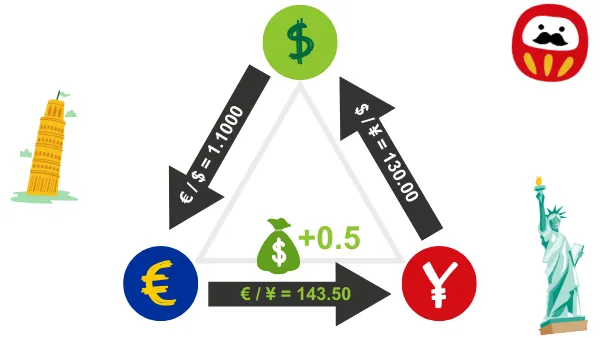Why Successful Long-Term Investing Is Less About "How Much You Make" and More About "How Much You Don't Lose"
The concept of compound interest is often described as the miracle of investing.We all hope to put our money into the market and watch it grow steadily with the power of time, ultimately helping us achieve our financial goals.
However, the investment journey is not smooth for many.
A common reason for failure is not that they didn't earn enough, but that they failed to effectively manage their losses, severely interrupting the growth process.
Why does this happen?
The core of the problem often lies in our instinctive human reactions to market volatility.
The Biggest Challenge in Investing: Managing Emotions
You might be familiar with the following two scenarios:- Emotional Buying: When the market sentiment is extremely optimistic and everyone around you is talking about their profits, a sense of anxiety about missing out can arise. Driven by this emotion, investors are prone to making impulsive buying decisions at market highs.
- Panic Selling: When the market turns and your portfolio starts showing losses that continue to grow, fear takes over. Persistent paper losses create immense psychological pressure, which can ultimately lead to investors selling their assets at market lows, turning temporary setbacks into permanent losses.
These two emotion-driven behaviors are the biggest obstacles to long-term wealth accumulation.
A successful long-term investor needs to learn how to build an investment discipline that is not disturbed by emotions.
Redefining Success: Surviving in the Market for the Long Haul
We need to redefine "investment success" from a more practical perspective.It's not necessarily about achieving the highest returns when the market is good, but about ensuring your portfolio can effectively control losses during difficult times, allowing you to weather the storm and remain in the market.
The key principle of successful long-term investing is: risk management should take precedence over the pursuit of returns.
This is like the "Tortoise and the Hare" race.
The hare runs fast, symbolizing a strategy of chasing high short-term returns, but may fail midway due to risk.
The tortoise moves slowly but steadily, symbolizing a prudent investor who focuses on continuous progress and avoiding major setbacks, ultimately reaching the finish line through "stability" and "persistence."
In the long race of investing, our goal is to be the steady tortoise, not the short-sighted hare.
Conclusion: Prioritize Risk
Before you make your next investment decision, please consider a key question:"In the worst-case scenario for this investment, what is the potential loss? Is this loss within my tolerance? "
Your investment strategy truly matures only when you start shifting your focus from "how much can I profit?" to "how can I avoid significant losses?"
Of course, having the right mindset isn't enough.
We also need objective tools to measure the level of risk in an investment.
Preview for the Next Article in the Series:
Since managing risk is so crucial, how can we evaluate it scientifically? In the next article, we will introduce two key metrics that professional investors use to analyze risk.
Hi, we are the Mr.Forex Research Team
Trading requires not just the right mindset, but also useful tools and insights. We focus on global broker reviews, trading system setups (MT4 / MT5, EA, VPS), and practical forex basics. We personally teach you to master the "operating manual" of financial markets, building a professional trading environment from scratch.
If you want to move from theory to practice:
1. Help share this article to let more traders see the truth.
2. Read more articles related to Forex Education.
Trading requires not just the right mindset, but also useful tools and insights. We focus on global broker reviews, trading system setups (MT4 / MT5, EA, VPS), and practical forex basics. We personally teach you to master the "operating manual" of financial markets, building a professional trading environment from scratch.
If you want to move from theory to practice:
1. Help share this article to let more traders see the truth.
2. Read more articles related to Forex Education.





